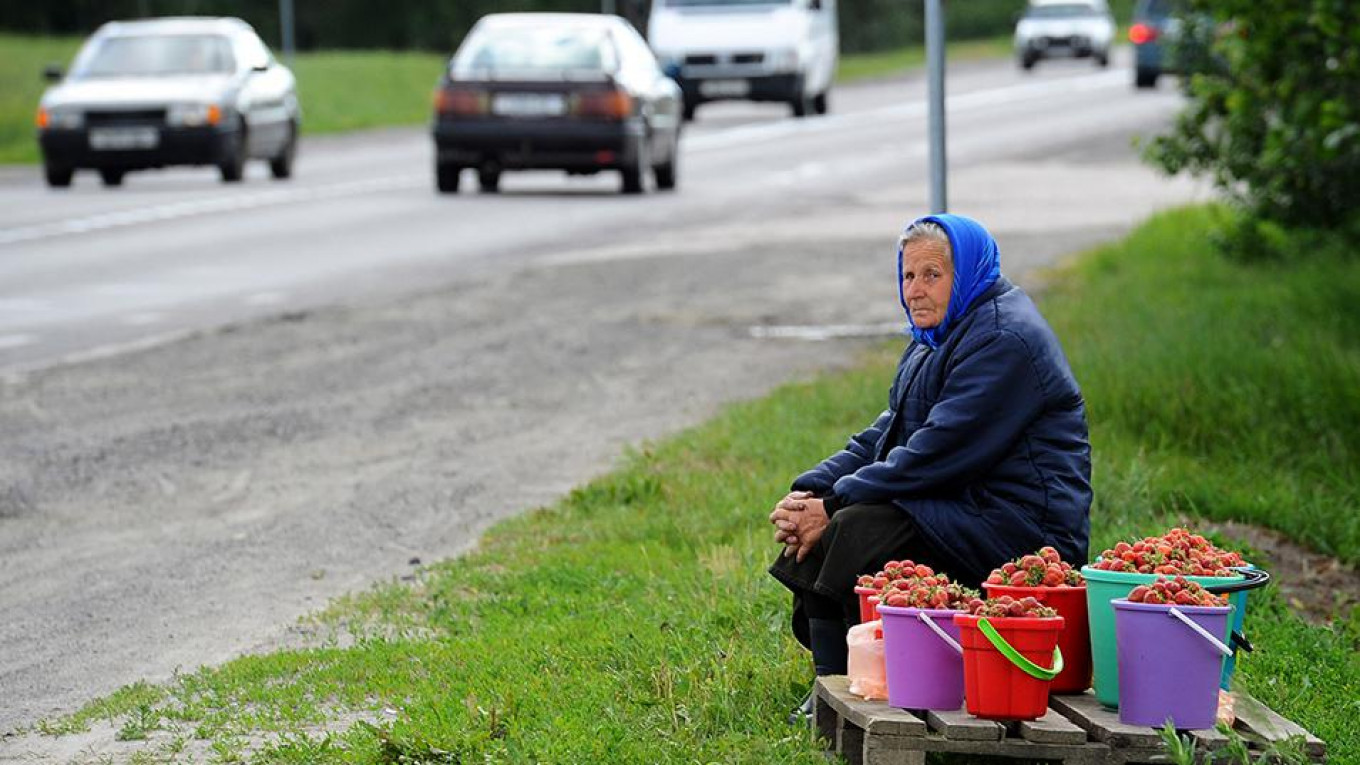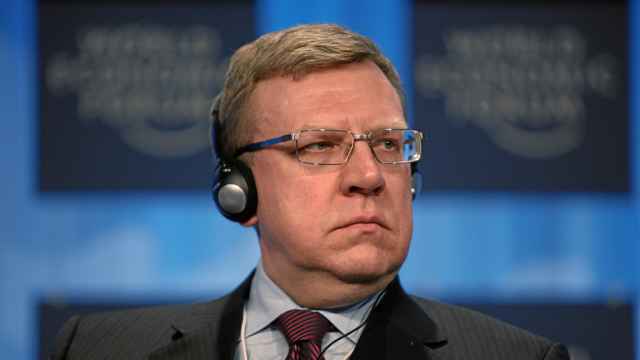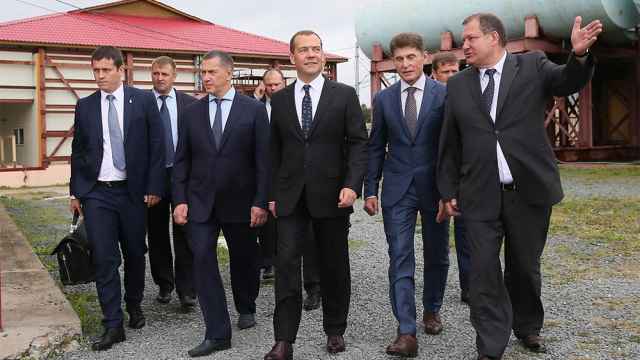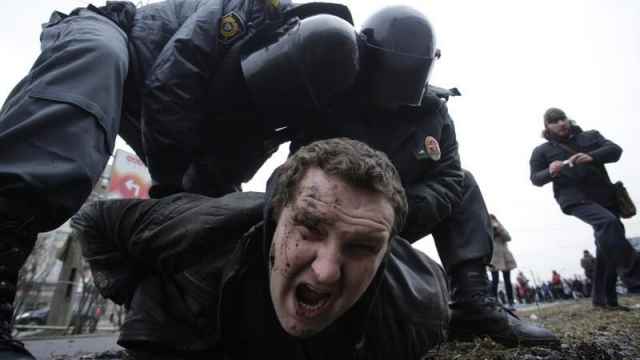A long-shelved plan to raise the pension age risks coming up against a wall of protest, as Russians of all ages cling to their Soviet-era social privileges.
Compared to many Western countries, Russians retire early: men at 60 and women at 55. Those who operate heavy machinery or work in difficult conditions qualify for early retirement.
Nevertheless, pension payments are notoriously low in Russia, with the national average at just 14,000 rubles ($220). Many pensioners supplement their incomes with jobs on the side or rely on support from their families to make ends meet.
Plans to raise the pension age, which was established in 1928, have circulated for years. But they have gathered pace in recent weeks, culminating on Saturday when Prime Minister Dmitry Medvedev signed off on a Cabinet proposal to the State Duma.
The new system would see a staggered rise in the pension age starting next year, until reaching 65 for men by 2028 and 63 for women by 2034.
In a note alongside the bill cited by the Interfax news agency, its authors argue the measure is needed to secure pension payments in the long run.
“Russia’s population is aging quickly,” said Oxana Sinyavskaya, deputy head of the Institute of Social Politics at the Higher School of Economics. “If the pension age isn’t increased now, then this will eat into the federal budget.”
The authors of the proposal also use gender parity as an argument to narrow the gap between men and women, saying that women’s “status” in society has changed, including “the equal division of household duties in families.”
We pay taxes, and they turn around and tell us there’s no money for us
That Russians have known for some time what was coming does not make the idea any more popular. A poll by researcher Romir said 92 percent of Russians opposed the proposal. A protest petition on Change.org had gathered a million signatories by Sunday.
A day earlier, some 300 people attended a protest in Novosibirsk, the local Taiga.info news outlet reported. “We pay taxes, and they turn around and tell us there’s no money for us,” local activist Viktor Sorokin was cited as saying. Protests have also been planned in other Russian cities.
Unusually, much of the anger is directed at President Vladimir Putin himself, who promised in 2005 during his annual phone-in show that the pension age would not increase as long as he was in power.
Kremlin spokesman Dmitry Peskov has emphasized that the proposal was worked out by Medvedev’s government, not the president. But “It’s important to realize that [Putin’s promise] was made 13 years ago,” he said. Russia has changed since then, he added: “No country exists in a vacuum.”
Concerned about possible backlash, the presidential administration is closely monitoring the mood in the regions, the Vedomosti business daily reported, citing a source close to the Kremlin.
One possible scenario is that the proposal will be softened at the president’s initiative, political scientist Mikhail Vinogradov told The Moscow Times.
“The bigger the gap between what the government and what Peskov say, the higher the chance of protest from the State Duma, trade unions, the church,” he said. “Discord would be a signal that the government is not under the president’s protection, and you can attack it.”
Many have argued the measure was deliberately planned to coincide with the World Cup, while news coverage is focused elsewhere. But, Sinyavskaya said, it is more likely it was done as early as possible into Putin’s new term. “Doing it later would be political suicide,” she said. “By the next election, the anger will have subsided. That it coincided with the World Cup was just luck.”
Includes reporting by Anton Muratov.
A Message from The Moscow Times:
Dear readers,
We are facing unprecedented challenges. Russia's Prosecutor General's Office has designated The Moscow Times as an "undesirable" organization, criminalizing our work and putting our staff at risk of prosecution. This follows our earlier unjust labeling as a "foreign agent."
These actions are direct attempts to silence independent journalism in Russia. The authorities claim our work "discredits the decisions of the Russian leadership." We see things differently: we strive to provide accurate, unbiased reporting on Russia.
We, the journalists of The Moscow Times, refuse to be silenced. But to continue our work, we need your help.
Your support, no matter how small, makes a world of difference. If you can, please support us monthly starting from just $2. It's quick to set up, and every contribution makes a significant impact.
By supporting The Moscow Times, you're defending open, independent journalism in the face of repression. Thank you for standing with us.
Remind me later.






